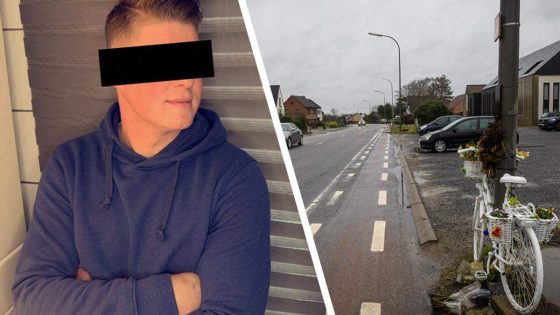The recent court case involving Pieter S., a 27-year-old from Diepenbeek, has drawn significant attention in Belgium. The trial, ongoing as of 2025-06-04 13:49:00, centers on a tragic accident where Pieter, driving under the influence, fatally struck cyclist Els Smeyers. This incident has deeply affected the local community and raised urgent questions about road safety and accountability.
- Pieter S. caused fatal drunk driving accident
- Victim Els Smeyers died on impact
- Prosecutor demands eight years prison sentence
- Family expresses deep grief and condemnation
- Pieter ignored alcohol interlock device repeatedly
- Court verdict scheduled for June 25
Els Smeyers, a 56-year-old UHasselt employee, was cycling to work when Pieter, with a blood alcohol level of 1.93‰, lost control and hit her. Despite having previous convictions for drunk driving and ignoring an alcohol interlock device, Pieter took his girlfriend’s car without permission, leading to the fatal crash. The court heard emotional testimonies from Els’ family, highlighting the profound grief caused by this reckless behaviour.
How can repeated offenders be stopped before tragedy strikes? And what measures can protect innocent road users from such dangers? These questions set the stage for the fast answer below.
This case underscores the critical need for stricter enforcement and preventive measures against repeat offenders. It also raises concerns about the effectiveness of current penalties and alcohol interlock systems. Key points include:
- Multiple prior convictions did not deter Pieter from driving under the influence again.
- The tragic collision occurred despite an existing court-ordered alcohol interlock device.
- Victims’ families suffer lifelong consequences, emphasizing the human cost beyond legal penalties.
- Calls for harsher sentences and preventive tools, such as lifetime alcohol interlocks and stricter vehicle access controls, are growing.
As the verdict approaches, Belgian authorities and citizens alike must reflect on how to better protect vulnerable road users and prevent similar tragedies. Will tougher laws and technology be enough to save lives? The coming months will be crucial in shaping Belgium’s road safety future.
































